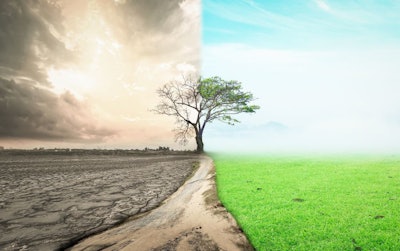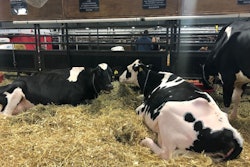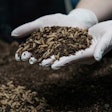
In early October, a new report, “Meat Consumption and Health: Food for Thought,” published in the Annals of Internal Medicine, challenged the prevailing wisdom that the consumption of red meat produces negative health effects in humans.
The study, which based on the “most comprehensive review of the evidence to date,” takes to task the legacy of flawed trials and biases against meat intake and concludes that red meat does not cause diseases. Yes, you read that correctly: not even cancer or heart disease.
In fact, the new guideline suggests “adults continue to eat their current levels of red and processed meat, unless they felt inclined to change them themselves.”
Well now, this is good news for the meat industry. Finally, some decent press, right?
However, this reprieve comes at a time when livestock production is under scrutiny on a different front: its greenhouse gas emissions.
Climate change: Pointing fingers at livestock production
This week alone, buzzwords like “climate change deniers,” 16-year-old climate activist Greta Thunberg nearly winning a Nobel Peace Prize and Jane Fonda getting arrested during a climate strike have made international headlines. And with it in the same context, the discussion surrounding the environmental impact of meat consumption comes up time and time again.
Worldwide, livestock is responsible for 14.5% of total greenhouse gas emissions — largely related to ruminant production and, to a lesser extent, monogastric emissions. However, it’s important to remember this figure factors in more than just animal bodily functions. For example, feed production and processing — including land use — accounts for 45% of the total.
Despite your stance on the culprits behind global warming, the climate crisis is for certain part of 2019’s zeitgeist.
Climate change and the feed industry
Erratic weather over the past several years poses a very real threat to animal health and grain quality, cost and availability. Experts do not foresee stabilization or a return to “normal” in the near or distant future. (Yes, I’m aware of natural climate cycles, etc.)
Regardless of the cause of global warming and its weather woes, the changing environment will introduce more challenges for global feed and animal protein producers. In addition to the effects extreme weather has on crop production, yield and food security, high levels of mycotoxin contamination will increasingly impact grain quality and, in turn, human and animal health.
More so than other areas of consumer demands and geopolitical uncertainty, climate change may arguably be the greatest challenge facing the feed industry moving forward.
Would you like to know more about the correlation between climate change, mycotoxins and feed management solutions? Keep an eye out for Feed Strategy’s November issue.
















